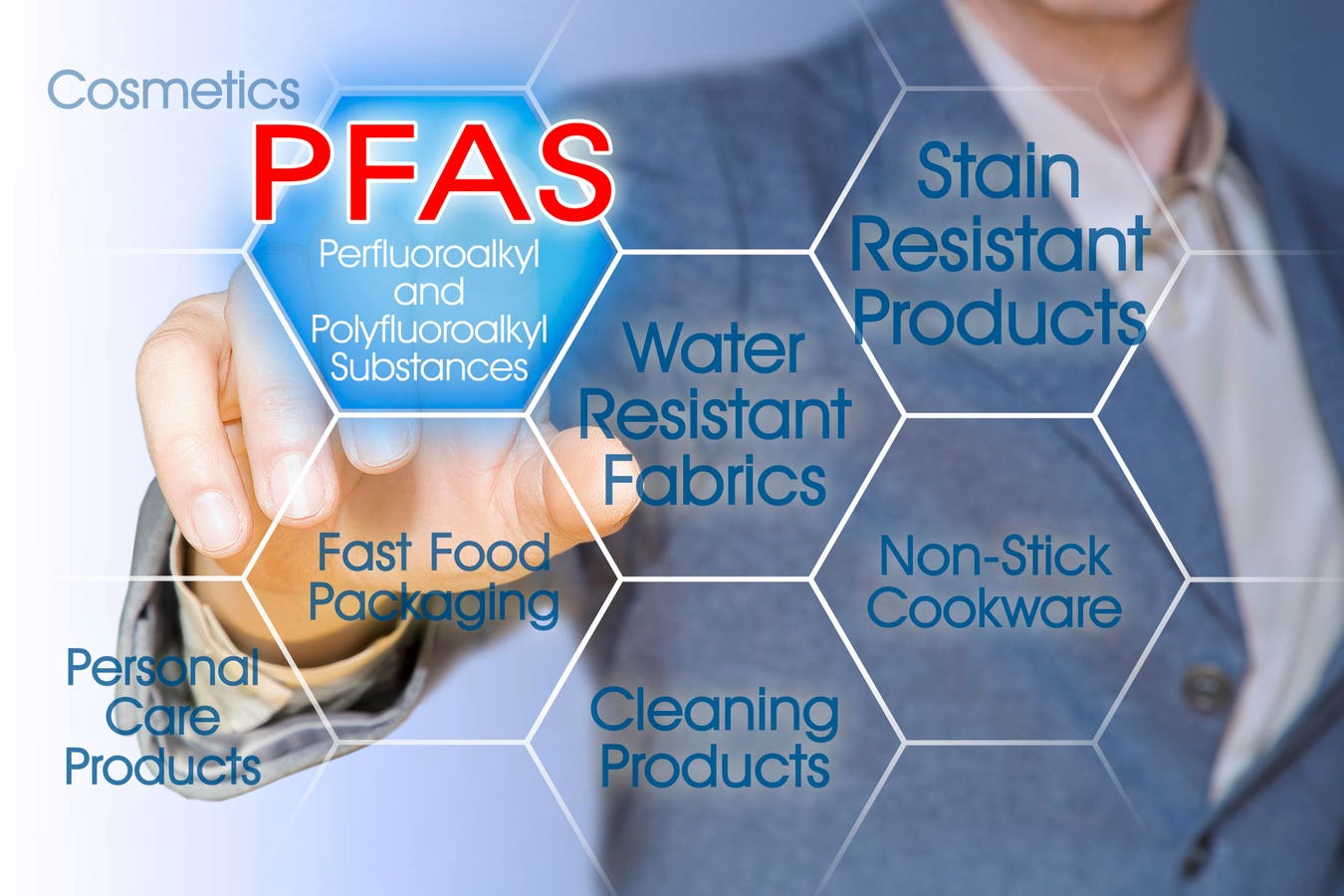While most companies know their P’s and Q’s, some know little about PFAS or choose to ignore it. Many consumers don’t even know about the dangers of PFAS. But these chemicals are increasingly being put under the spotlight by news reports, governments are acting swiftly to respond with new laws and regulations, and courts across the country are filling up with litigation.
PFAS-Forever Chemicals
Per- and polyfluoroalkyl substances (PFAS) are a group of manufactured chemicals that includes PFOA, PFOS, GenX, and many other compounds. PFAS have been manufactured and used in various industries around the globe and are used in a wide range of consumer products that people use daily, such as cookware, pizza boxes, waterproofing, and stain repellents. PFAS are known as “forever chemicals” because they do not break down and can accumulate over time. Their strong carbon-fluorine bonds make them resistant to degradation in the environment. However, PFAS can accumulate in the bodies of humans and wildlife, leading to potential adverse health effects. They contaminate soil, water, and air during production and use and are now found in the environment, wildlife, and humans worldwide.
Regulation and Remediation
Due to their health and environmental risks, there is a growing demand for regulation and phasing out certain PFAS or their applications. Although the US EPA announced its Strategic Roadmap in 2021, outlining its approach to addressing PFAS through its various offices, and much progress has been made at the federal level, PFAS are largely regulated through a patchwork of state-specific requirements. In some places, regulatory agencies have set restrictions and guidelines, or issued advisories for PFAS in drinking water, cosmetics, textiles, and even ski wax, and there are efforts to include PFAS in required investigations and remediation of contaminated sites.
Regulation is also ramping up in the food and beverage sector. In December 2022, New York became the first state to ban the sale of certain types of food packaging with “intentionally added” PFAS. California and six other states soon followed. Similar laws will take effect in four more states by New Year’s Day 2025, with many others considering their own bans. Without a federal rule, food and beverage companies with multi-state footprints struggle with state-specific nuances, as some apply only to food contact surfaces, paper-based packaging, or both.
Attorneys Alfredo Fernandez and Tyler Archer of Shipman and Goodwin LLP, who are experienced in diverse PFAS matters, recommend food and beverage companies, including those in the emerging cannabis/CBD edibles space, secure assurance letters from upstream packaging to confirm whether the packaging they receive contains “intentionally added” PFAS. Companies should expect to be asked for similar assurances from their downstream customers, vendors, and retailers. Importantly, some states offer a safe haven to companies with written assurances about their packaging.
Flavor of Litigation
Litigation related to PFAS has become increasingly common as the understanding of the potential health and environmental risks associated with these chemicals has grown. Manufacturers that produce or use PFAS in their processes, even unknowingly, are vulnerable. PFAS manufacturers 3M and Dupont have recently proposed settlements in the billions of dollars in a multidistrict litigation with public water system operators affected by PFAS contamination. States, municipalities, and water utilities are suing over contamination of water. Consumer protection groups have taken action against fast food chains, grocery stores, and consumer packaged goods companies. Individuals, including military personnel and firefighters, who may have been affected with potentially PFAS-related diseases and other medical issues have filed suits as well.
These claims include negligence, environmental harm, product liability, nuisance, and trespass, but defenses are very challenging. Was the alleged injury specifically caused by PFAS? Is there scientific evidence to back up the claims? Has the statute of limitations expired? These and other emerging and critical issues will be litigated in court.
Many lawsuits affecting the food and beverage sector focus on false or misleading
advertising regarding food safety or marketing claims such as the term “all-natural.” Take the Simply Orange brand lawsuit, where parent company Coca-Cola can face millions of dollars in fines and damages for allegedly falsely marketing the brand’s Simply Tropical drink as a “natural” and “organic” product—at a higher price point—to explicitly to health-conscious consumers yet failing to list the presence of synthetic PFAS on its juice label.
Another class-action lawsuit alleges US beverage maker Bolthouse Farms deceived customers with claims that its Green Goodness smoothie is made of “100% fruit juice” after testing found the drink allegedly contains toxic PFAS at levels far above federal health advisory drinking water limits.
As Alfredo and Tyler of Shipman and Goodwin told me: “As PFAS risks become more understood, regulations more robust, and litigation more common, it’s also critical that food and beverage companies proactively evaluate their operations and supply chains to understand their specific PFAS risks, including in the ingredients, food packaging, or even waste streams, and develop a thoughtful risk management plan.” F&B Companies need to get on board quickly.
Read the full article here





